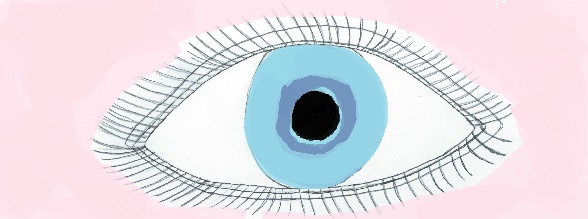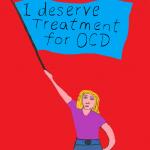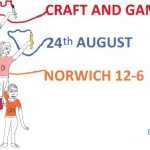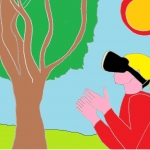How Young People See OCD – Article by Chelsea
March 6th 2015
By Chelsea (16). Chelsea lives in Dorchester in the South of England. She is currently studying for her GCSEs where she is particularly interested in English, History and Psychology. She plays tennis, so writing and sports are the two things she enjoys doing. She was diagnosed with OCD last summer but it has always been something she's had to deal with.
For many young people Obsessive Compulsive Disorder is a debilitating mental illness that can control their life. Often referred to as OCD, Obsessive Compulsive Disorder is an illness that makes a person believe that routines and rituals will stop intrusive and harmful thoughts from occurring.
To the person suffering from OCD it is a traumatic and difficult thing to live with, but for the people who have never experienced this illness it can be seen as something that can be easily corrected and forgotten about. This stigma is regularly observed in schools because many young people are not taught properly about mental health and so do not know how much it can affect a person’s behaviour.
To have a friend with OCD usually means you see what they are forced to do in order to get through the day. Some days they will be completely open with you and other days are are just a shell of themselves. However, just because they are your friend it doesn’t mean you completely understand what they are going through.
Jessie Fields, 16, understands OCD as “quirky behaviour that can easily be stopped.” She believes that her friend needs to learn to realise that the thoughts she’s having aren’t true, and that hand washing isn’t going to solve anything. “Everyone has a bit of OCD in them. It’s obvious that some people have it worse than others but if they stopped thinking that their compulsions will help then they can overcome their illness.” Jessie is aware that her friend needs to carry out her compulsions but she is not aware that her perception of OCD and how it can be stopped is why many young people don’t get the help they so desperately need.
Many young people don’t want to admit to having a mental illness due to stereotypes and stigmas. Every condition is different and different people require different means of support. People with no experience of OCD believe that we are all ‘neat freaks’ who need everything to be perfect. This isn’t always the case. Schools are regularly not equipped to deal with their students who have mental illnesses and therefore those students do not get the help they so desperately need.
These stereotypes and stigmas must be reduced so that more people can feel they can talk about mental health. Young people must be made to feel comfortable within their own mind and body or it could lead to difficulties not only now but in the future. Maybe schools should teach about mental illness so that young people don’t feel trapped within themselves. With today’s people not getting fully educated about OCD and other mental illnesses, it leaves room for problems in the future.







